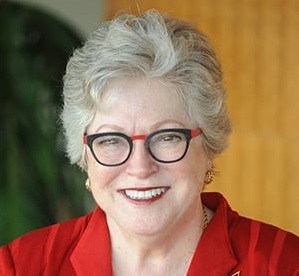 “How can I get my son interested in Christian faith?” asked a concerned mother at a post-worship talk back session. Many share her heart cry as we see generational shifts with regard to perceptions of the relevance of congregational life. “Will our church be here for my grandchildren?” another murmured to me in passing.
“How can I get my son interested in Christian faith?” asked a concerned mother at a post-worship talk back session. Many share her heart cry as we see generational shifts with regard to perceptions of the relevance of congregational life. “Will our church be here for my grandchildren?” another murmured to me in passing.
Here is our challenge. Can we entrust the treasure of the Gospel in faithful ways for those who follow us? Faith is not about getting all the doctrine just right; it is about living as if God matters in this world. Faith encourages a merciful response to those who are suffering. When tempted to despair, those who live in faith continue to work for the common good.
Many want little to do with formal church precisely because of its insularity, its lack of engagement with urgent issues of justice like climate change, gun control, the rights of sexual minorities and the immigration crisis. Insider Christian language like “evangelical” is now so linked with political machinations that it is of dubious value to an outsider.
“Persons are actually interested in our faith when we are humble, empathic with their journey and open to other patterns than our own.”
Kenda Creasy Dean of Princeton Theological Seminary observes that American Christians are failing in passing on a robust faith, and she suggests that our youth are “almost Christian.” She argues that “moral therapeutic deism” is about all we are offering. Perceptively, she notes that “if teenagers lack an articulate faith, maybe it is because the faith we show them is too spineless to merit much in the way of conversation.”
This is mostly likely true with adults, also. Are we willing to engage them as whole persons?
This past Sunday I witnessed the power of invitation. The pastor’s wife had encountered a young woman at a community event who was new to the city. The woman had come out of a very conservative background that had undermined her sense of self. Attending a fundamentalist university compounded her displacement and also served to squelch her real questions. Eventually, she simply ceased to be a part of any church.
Sensing that the woman needed some new pathways if her faith was to be rekindled, the pastor’s wife simply invited her to come to church to hear a woman preach and then to join her at the lunch gathering afterward.
Jean Vanier, founder of the L’Arche communities, has written that the Gospel is essentially about welcome, and when persons sense this deeply, it is akin to resurrection. On Sunday, I watched this welcome in action, and I believe it will be a turning point for this young woman who wants a faith congruent with what she experiences professionally and personally in the field of mental health.
Our faith is not just about what we do when we gather as a congregation. That is what is usually measured for congregational thriving, and it matters. It is not the whole, however. We must consider how our trust in God’s incessant prompting toward goodness and justice impacts our work, our relationships and our politics. Equipping persons to share the treasure of faith in those places is a critical task for churches.
“The essential mark of maturity in Christians – like in peach trees – is generativity.”
I have a friend who has a progressive neuro-degenerative disease whose faith is becoming ever more precious to him. A former CEO of a prestigious company, he now depends upon assistance in every area of his life. He has decided to pay attention to the Spirit as closely as he can, and he uses every opportunity to engage persons about deeper meaning in their lives. As he encounters folk in all kinds of circumstances, he simply asks, “Are you a person of faith?” It opens many interesting conversations and in a non-threatening way leads to thinking about the treasure faith is.
On a rare occasion a person will candidly respond, “Actually, no.” That response also opens the possibility of a meaningful exchange, especially in this instance with a person who is authentically clinging to faith as a way of managing a devastating physical diminishment with hope and grace.
These conversations take place outside the gathered community, yet they are an expression of one seeking to safeguard the good treasure entrusted to him by sharing it.
Scripture enjoins us not to be ashamed to testify about the work of God. I try to remember this when my seatmate on an airplane inquires about my profession. The word “seminary” is not within everyone’s vocabulary, and I talk about its mission to prepare leaders who seek God, shape Church and serve humanity and all creation. When I say that we are Baptist in heritage, I have to explain “we are the nice Baptists.”
Persons are actually interested in our faith when we are humble, empathic with their journey and open to other patterns than our own. The essential mark of maturity in Christians – like in peach trees – is generativity. Mature faith bears fruit, and when we pay attention to the pilgrimage of others, especially the less mature, we are ensuring that the treasure of Gospel faith entrusted to us endures.
